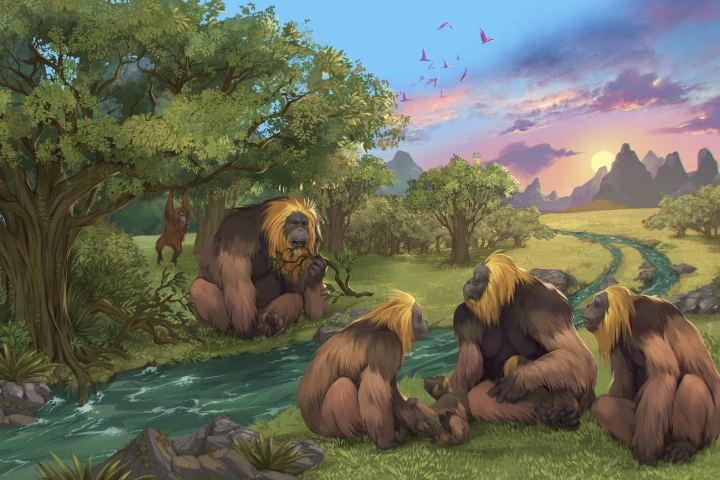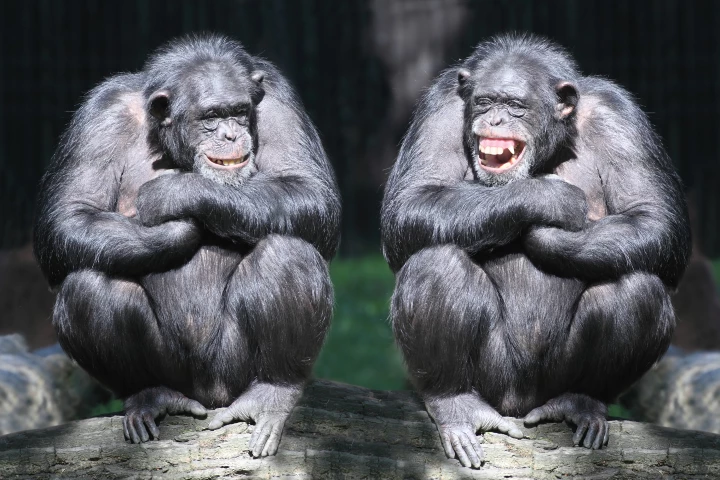Apes
-
Most of us do it, in one form or another, but how and when humans began to kiss is still hotly debated among researchers. Now, a new evolutionary theory has been put forward, which says the origins of the kiss may date back millions of years.
-
For the first time ever, a wild male orangutan in Sumatra has been spotted tending to a wound on his face in an ingenious way. The technique worked, adding even more cred to the intelligence of this striking and endangered species of great ape.
-
For two million years, a 10-feet-tall, 660-pound ape thrived in the forest, until it mysteriously vanished during the late middle Pleistocene. After 10 years of work, scientists at last reveal just what happened to our largest known distant relative.
-
In what may put some of us to shame, apes instantly recognize family and friends that they haven’t seen in more than two decades, which is the longest ‘social memory’ in a non-human animal ever documented.
-
In a world first, Budapest Zoo gorilla Liesel has received stem-cell therapy for her arthritis. It's hoped that this groundbreaking procedure, which aims to rejuvenate her damaged joint cartilage, will not just help her but be adapted for human use too.
-
It has long been believed that our prehistoric ancestors started walking on two legs as they moved from the trees into the open environment of the African savanna. A new study of chimpanzees, however, suggests that such may not have been the case.
-
A newly discovered fossil may change what we know about an ancient human relative. Vertebrae from the lower back of an Australopithecus sediba reveal it was surprisingly well adapted to walking upright like a human, while also climbing like an ape.
-
For the first time, new research describes both gesture-based and vocal communication among wild orang-utans: specifically Southwest Bornean orang-utan mothers and their young.
-
It's tempting to pin the rise of humanity to become the world's dominant species on our ability to out-think the competition. But new research suggests that our abilities to work together and share are the key to our success.
-
Surprising new research shows that chimpanzees and bonobos share common gestures and meanings. That's fascinating in itself, but it raises intriguing questions as to how sign language is inherited, and whether humans share any gestures and meanings with other apes.
-
New animal species are constantly turning up in the deep oceans, thick jungles, or even dusty museum store rooms. Here’s our favorite new additions to the Tree of Life in 2017, as well as a couple of “Lazarus” creatures that were believed extinct but rediscovered this year.
-
Are human beings the only animals that will help other members of their species out, even if they don't know them? Not according to Jingzhi Tan, a postdoctoral associate in evolutionary anthropology at Duke University. He has observed wild bonobos being nice to bonobos that they don't know.
Load More











